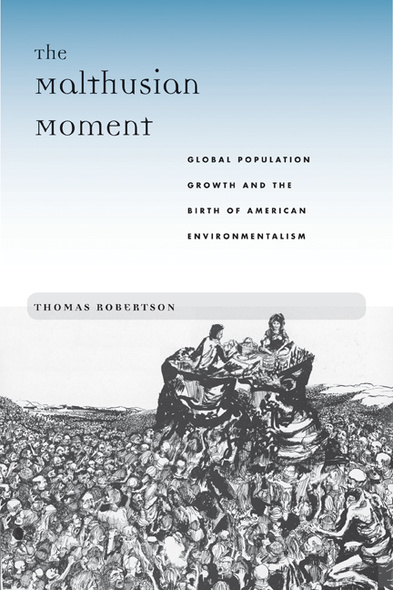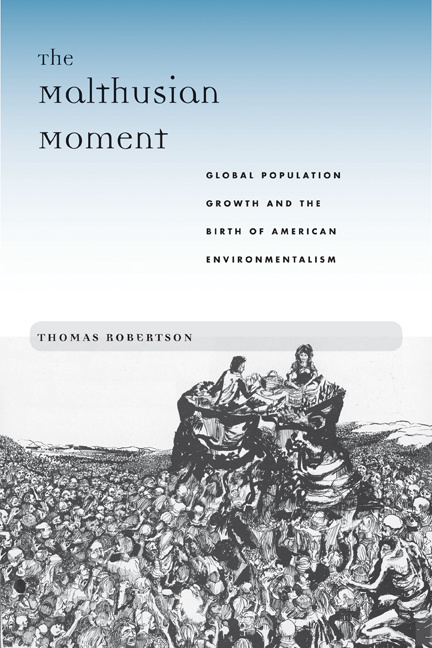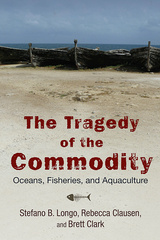The Malthusian Moment
Global Population Growth and the Birth of American Environmentalism
Weaving together the international and the domestic in creative new ways, The Malthusian Moment charts the explosion of Malthusian thinking in the United States from World War I to Earth Day 1970, then traces the just-as-surprising decline in concern beginning in the mid-1970s. In addition to offering an unconventional look at World War II and the Cold War through a balanced study of the environmental movement’s most contentious theory, the book sheds new light on some of the big stories of postwar American life: the rise of consumption, the growth of the federal government, urban and suburban problems, the civil rights and women’s movements, the role of scientists in a democracy, new attitudes about sex and sexuality, and the emergence of the “New Right.”
Whatever happened to overpopulation? Thomas Robertson’s thorough, lively, and superbly historicized account helps us think through this most pressing question.
An excellent synthesis. The real strength of Robertson's work is his consideration of the dynamism and complexity of attitudes toward overpopulation. Writing a historical synthesis is never easy, but good environmental history demands it. Robertson has pulled the task off in spades.
Skillfully weaving together heightened concerns over rampant consumerism, accelerating population growth and environmental degradation, and their impact on American foreign policy, The Malthusian Moment is very likely to become obligatory reading for those interested in the tumultuous decades of the Vietnam era.'
This volume traces how the sociopolitically-based environmental movement of the post-WW II era embraced the siren calls of biologists warning of the global impact of overpopulation. Recommended.
The Malthusian Moment is a valuable book that brings environmental history in touch with diplomatic and international history, helping to fill a gap in our understanding of the rise and fall of population politics.
Robertson explores complex linkages among global population growth, the politics of population, food and hunger, and American environmental anxiety in the 20th century. His is the clearest, most incisive study of American thinking on population from 1945-75, the height of Malthusian fears in intellectual and official circles.
The great strength of this volume is the way the author teases out how ecological models and biological thinking shaped the population discussion in the 1960s, and how Ehrlich in particular rethought his formulations in light of the nuances of political matters, and re-emphasized his critiques to be more sensitive to his audience.
THOMAS ROBERTSON is an assistant professor in the department of humanities and arts at Worcester Polytechnic Institute where he teaches U.S., global, and environmental history.
War and nature: Fairfield Osborn, William Vogt, and the birth of global ecology
Abundance in a sea of poverty : quality and quantity of life
"Feed 'em or fight 'em: population and resources on the global frontier during the Cold War
The "Chinification" of American cities, suburbs, and wilderness
Paul Ehrlich, the 1960s, and the population bomb
Strange bedfellows: population politics, 1968-1970
We're all in the same boat!?: The disuniting of spaceship earth
Ronald Reagan, the new right, and population growth






